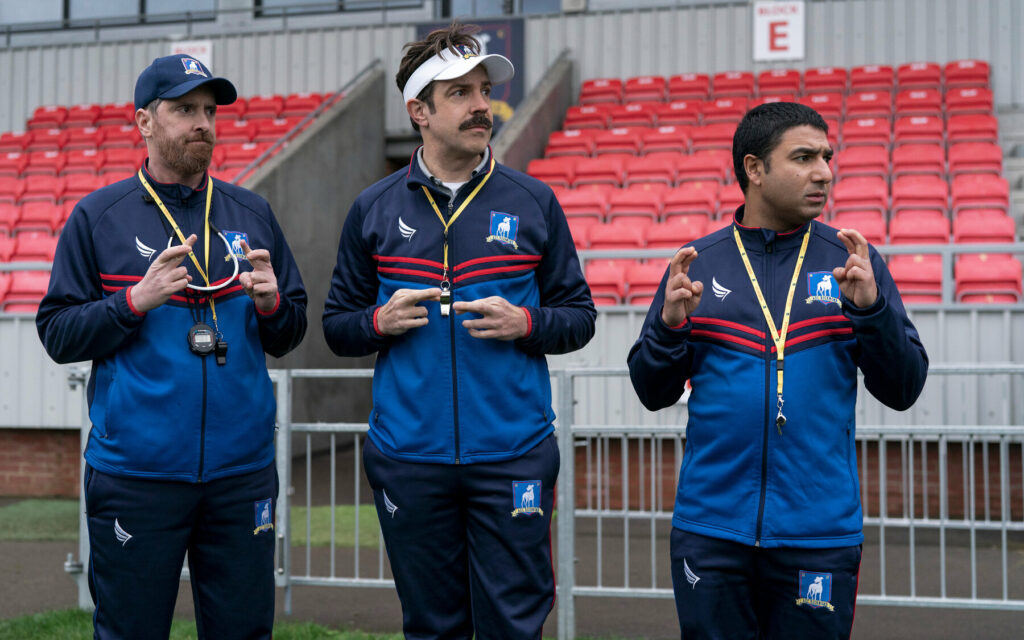Ted Lasso, the popular comedy series on Apple TV+, has garnered critical acclaim and a loyal fan following for its heartfelt portrayal of an American football coach who takes up the job of coaching a struggling British soccer team. While the show has been praised for its humor and heartwarming storylines, it has also been lauded for its positive messages around mental health.
In an era where mental health concerns are on the rise, Ted Lasso presents a rejuvenating outlook on managing life’s obstacles. By means of its characters, plotlines, and comicality, the series underscores the significance of reaching out for assistance, embracing one’s vulnerability, and prioritizing self-care.
Embracing Mental Health
In an interview with NPR’s Terry Gross, Bill Lawrence, one of the co-creators of the show, said, “We wanted to make a show about decency and kindness and how they can be seen as weaknesses, but in fact, they’re strengths. And one of the ways that we found to highlight that was through the lens of mental health.”

A key takeaway from the show is the significance of seeking assistance when confronted with mental health challenges. The series depicts characters coping with depression, anxiety, and other mental health concerns and urges them to seek expert guidance. An excellent example of this is Roy Kent’s character, a former football player grappling with anger issues who eventually turns to therapy to regulate his emotions. By highlighting the notion that asking for help is an act of courage, the show effectively dismantles the negative perception surrounding mental health issues. There are other characters like Rebecca Welton, Keeley Jones, and Jamie Tartt who depict different issues related to mental health.
Rebecca Welton struggles with anxiety and depression after her divorce, which is further exacerbated by her attempts to sabotage her ex-husband’s soccer team.
Keeley Jones, a former model, experiences burnout and leaves her high-profile job to prioritize her own happiness.
Jamie Tartt, a talented but troubled soccer player, struggles with feelings of inadequacy and seeks validation from others.
Nate Shelley, a team coach, deals with imposter syndrome and low self-esteem, causing him to lash out at others.
The Power of Vulnerability
Another important message of the show is the power of vulnerability. In a world that often values toughness and stoicism, Ted Lasso encourages its characters to open up and share their feelings. This is demonstrated in the character of Ted Lasso himself, who is unafraid to show his emotions and vulnerabilities, despite the pressure of coaching a high-stakes soccer team. By modeling vulnerability, the show sends a powerful message about the importance of emotional honesty and the strength it takes to be open with oneself and others. In an interview with Entertainment Weekly, Jason Sudeikis, another of the show’s co-creators, said, “We wanted to show that mental health is not just about clinical depression or anxiety disorders. It’s also about the everyday challenges that we all face and the importance of taking care of ourselves and each other.”

Ted Lasso stresses the significance of self-care. Through its characters, the series emphasizes the importance of dedicating time to prioritize one’s mental health and well-beinge to prioritize one’s mental health and well-being. Keeley Jones’ character is an excellent example of this, as a former model who quits her high-profile job to focus on her own contentment. By presenting the notion that it is acceptable to prioritize oneself and look after one’s mental health, the show advocates for a culture of self-care and self-compassion.
Asking For Help Is Not A Sign of Weakness
Bill Lawrence, in another interview with The New York Times, mentioned, “One of the things that we hope people take away from the show is that seeking help is a sign of strength, not weakness. It takes a lot of courage to admit when you’re struggling and to ask for support.”
While Jason Sudeikis, in an interview with The Guardian, said, “We didn’t want to preach or lecture about mental health. Instead, we wanted to use humor and empathy to help people feel seen and heard and to encourage them to have open and honest conversations about their own mental health.”

Ted Lasso’s messages around mental health are not only important, but they are also relatable, humorous, and relevant. By depicting mental health concerns realistically, the show has been successful in engaging a wide audience and initiating conversations around mental health. Its emphasis on seeking help, vulnerability, and self-care provides valuable insights for everyone, whether they are dealing with mental health issues or seeking a more fulfilling life.
The creators of “Ted Lasso” have been deliberate in their approach to mental health messaging, stressing the importance of portraying it authentically and encouraging people to seek help when needed. Their focus on kindness, empathy, and self-care has resonated globally, helping to break down the stigma around mental health. As we continue to navigate challenges like the pandemic and other stressors, the messages of “Ted Lasso” remain more relevant than ever, reminding us that we are all in this together.


